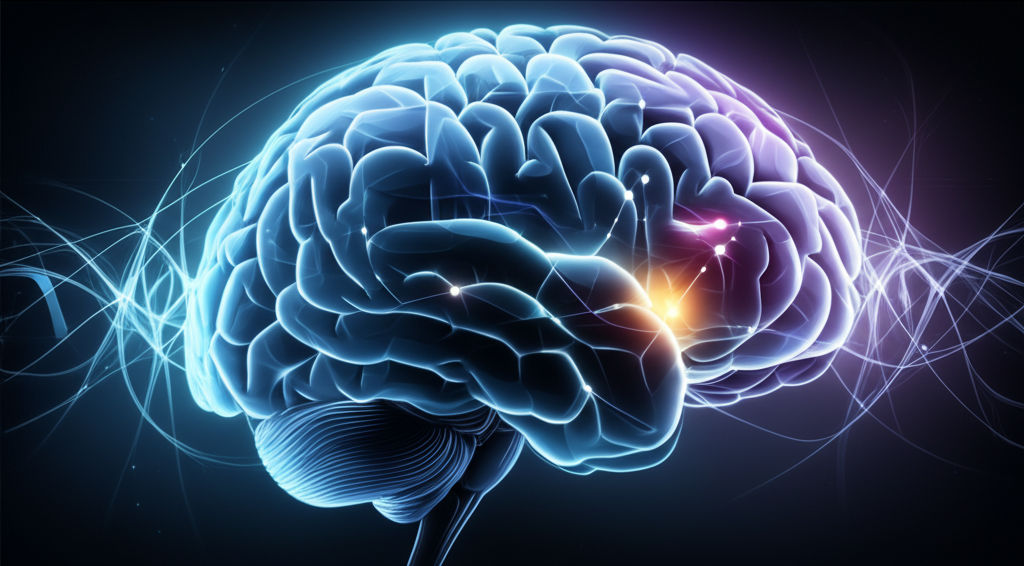Men's Mental Health A Deeper Dive
Emily Willis

Photo: Men's Mental Health A Deeper Dive
Men's Mental Health: A Deeper Dive into Wellness
In a world that often champions strength, stoicism, and self-reliance, men's mental health frequently remains an unspoken struggle. While conversations around mental well-being have gained traction, the unique challenges men face in acknowledging, discussing, and seeking help for their mental health are often overlooked. This article takes a deeper dive into the landscape of men's mental health, exploring common issues, the societal pressures that contribute to silence, and actionable steps towards fostering greater mental wellness for men.
The Silent Struggle: Why Men Often Suffer in Silence
For generations, men have been conditioned to "man up," "tough it out," and suppress their emotions. These deeply ingrained societal expectations of masculinity, emphasizing strength, independence, and control, create a formidable barrier to open emotional expression and help-seeking behaviors. The prevailing belief that men should embody stoicism and self-reliance can make expressing vulnerability feel like a deviation from the norm, reinforcing a pervasive stigma around men's mental health.
This cultural conditioning often leads men to internalize their emotions, which can exacerbate mental health conditions or lead to more severe consequences. The fear of being perceived as weak or "unmanly" if they openly discuss their mental health challenges is a significant deterrent. Consequently, many men suffer in silence, leading to adverse outcomes such as increased stress, anger, and even physical health problems due to unaddressed issues.
Common Mental Health Challenges Affecting Men
While men experience many of the same mental health conditions as women, the way these conditions manifest can differ significantly, making diagnosis and treatment more complex.
- Depression: Although women are about twice as likely to be diagnosed with depression, men's depression often goes unrecognized or misdiagnosed because symptoms can differ. Instead of overt sadness, men might experience depression as irritability, anger, tiredness, or engaging in risky behaviors like reckless driving or substance abuse. Some men may also throw themselves into work or sports as a way to escape feelings. Research indicates that 6.2% of men had a major depressive episode in the last year, though this is likely an underestimate as men are less likely to report mental illness.
- Anxiety: Approximately 1 in 10 men struggle with anxiety and/or depression, though this figure is likely underestimated due to underreporting. Untreated anxiety can jeopardize mental well-being, relationships, and overall quality of life. Men may experience various forms of anxiety disorders, including generalized anxiety disorder, social anxiety disorder, and panic disorder.
- Stress and Burnout: Men often face unique stressors related to societal expectations, career pressures, and family responsibilities. The constant drive to define success through professional achievement and financial gain can lead to significant mental health struggles, including anxiety, depression, and burnout. Work-related pressure and financial concerns are among the biggest causes of pressure impacting men's mental health.
- Substance Abuse: Men are disproportionately more likely to misuse drugs and alcohol, often using them as a coping mechanism for underlying emotional difficulties and unaddressed mental health issues. This pattern can reflect societal norms where seeking emotional support or therapy is stigmatized, leading men to self-medicate. Men are 1.5 to 2.3 times more likely to develop substance use disorder than women.
- Suicide: Perhaps the most alarming statistic in men's mental health is the suicide rate. Men account for a significantly higher percentage of deaths by suicide globally, with rates consistently higher than those of women. In the US, the suicide rate among males is approximately four times higher than that of females, with males making up nearly 80% of suicides. Suicide is a leading cause of death for men under age 50. This tragic disparity is partly because men tend to use more lethal methods and may show fewer warning signs, often acting more suddenly on suicidal thoughts.
Recognizing the Signs: What to Look For
Recognizing mental health struggles in men can be challenging because their symptoms may not align with commonly perceived signs of distress. It's crucial to look beyond overt sadness and consider a broader range of indicators:
- Behavioral Changes:
- Increased irritability, anger, or aggression.
- Withdrawal from friends, family, and social activities.
- Engaging in risky or reckless behaviors (e.g., excessive alcohol or drug use, reckless driving, unsafe sex).
- Escapist behaviors, such as working excessively or spending a lot of time on hobbies/sports to avoid dealing with feelings.
- Difficulty concentrating or making decisions.
- Changes in appetite or sleep patterns (sleeping too much or too little).
- Physical Symptoms (often masked as physical ailments):
- Headaches, digestive problems, or chronic pain.
- Tiredness, fatigue, or lack of energy.
- Changes in weight.
- Sexual dysfunction.
- Emotional and Cognitive Indicators (may be less obvious):
- Feeling down, sad, or empty (though often suppressed).
- Losing interest in activities usually enjoyed.
- Feelings of hopelessness or emptiness, or a persistent pessimistic outlook.
- Feeling "on autopilot".
These signs can be subtle, and men may struggle to define and express their mental health challenges. An alarming 40% of men surveyed said it would take thoughts of suicide or self-harm to compel them to get professional help.
Breaking the Cycle: Actionable Steps for Men's Mental Wellness
Fostering men's mental wellness requires a multi-faceted approach that challenges traditional norms, promotes emotional literacy, and enhances access to support.
1. Seeking Professional Help
Despite the stigma, seeking professional mental health support is a sign of strength, not weakness. Therapy offers a safe, non-judgmental space for men to explore their thoughts, emotions, and experiences.
- Benefits of Therapy: Therapy can significantly improve emotional well-being, enhance communication skills, increase emotional awareness, and provide effective stress management techniques. It helps men identify and express emotions in healthy ways, resolve past trauma, and build healthier relationships. Cognitive-behavioral therapy (CBT) is particularly effective for managing anxiety and depression.
- Overcoming Barriers: Many men feel they should be able to "fix" their problems on their own or don't see the value in mental health support. However, therapy isn't just about solving a problem; it's about shifting mindsets, developing coping skills, and gaining self-awareness. Virtual support options can also broaden access and offer more flexible, discreet ways to connect with providers.
2. Building a Support System
Isolation and loneliness significantly increase the risk of mental health challenges. Building and nurturing a strong support network is crucial for men's mental well-being.
- Connect with Trusted Individuals: Speak with friends, family members, or a partner you trust. The majority of men (60%) who do share their feelings about mental health often confide in their partner first.
- Join Support Groups: Community groups or peer support networks can provide safe spaces for men to share experiences and reduce feelings of isolation.
- Lend an Ear: For friends and family, being willing to listen, understand, and dedicate space for men to be vulnerable is integral. Encourage open conversations and let them know you're there to listen without judgment.
3. Healthy Coping Mechanisms and Lifestyle Changes
Adopting healthy coping mechanisms and making positive lifestyle changes can significantly impact mental health.
- Regular Physical Activity: Exercise is a powerful stress reliever and mood enhancer. Activities like jogging, swimming, lifting weights, or team sports can provide a productive outlet for built-up stress.
- Mindfulness and Relaxation Techniques: Practices like meditation, journaling, and deep breathing can help men manage stress and maintain emotional balance. Apps can offer guided sessions, making these accessible.
- Prioritize Sleep: Quality sleep is closely linked to mental health. Aim for consistent sleep schedules and adequate rest.
- Balanced Nutrition: Eating healthy food can improve how you feel overall.
- **Engage in Hobbies and Creative Outlets
Latest ✨
View AllYour blueprint for operational efficiency: learn strategies to do more with less, cut costs, boost profits, and achieve lasting business success.
Emily Willis
economic growth prospects of major countries such as the United States, China, the European Union, Japan, and India. It highlights the factors driving their growth, challenges they face, and opportunities for businesses and investors. Each country has unique strengths and risks, and understanding these dynamics is crucial for strategic decision-making.
Emily Willis
The digital economy is reshaping jobs and fueling global growth. Explore its impact on employment, new roles, and future opportunities.
Emily Willis
concept of minimalist living, which involves creating a clutter-free environment to promote peace and well-being. It highlights the benefits of minimalism, such as reduced stress, enhanced focus, and financial benefits. The core principles of minimalist living include intentionality, decluttering, functionality, quality over quantity, and organization.
Emily Willis
Business
View All
June 18, 2025
Navigating Mortgage Refinance Rates: Your Ultimate GuideUnlock lower payments and save thousands! Our guide breaks down mortgage refinance rates, helping you find the best options and maximize your home equity.
Emily Willis

June 9, 2025
Achieve Customer Service ExcellenceMaster customer service excellence to build lasting loyalty & drive growth. Get your blueprint for success and exceed customer expectations!
Emily Willis

June 9, 2025
Beginner's Guide to Affiliate MarketingDemystify affiliate marketing! Our beginner's guide shows you how to earn online income by promoting products. Start your journey to financial freedom.
Emily Willis
Economy
View AllExplore the booming gig economy: its rapid rise, immense opportunities, and key challenges. Understand why it's reshaping how millions work globally.
Read MoreLooking to save on car insurance? Discover how to get accurate, personalized car insurance quotes online with this comprehensive guide. Fast, easy, and cost-effective.
Read MoreUnlock the power of education economics! Discover how investing in human capital drives economic growth, innovation, and shapes our collective future prosperity...
Read MoreEntertainment
View All
July 4, 2025
Scuffed Yet Super FunEmbrace the charm of "scuffed yet super fun" experiences! Discover why unpolished, authentic moments bring true joy in a world obsessed with perfection.
Emily Willis

July 5, 2025
PR Coordinator Entry Level EntertainmentLights, Camera, PR! Your guide to becoming an entry-level PR Coordinator in entertainment. Discover essential skills & a roadmap to your dream career.
Emily Willis

August 4, 2024
Virtual Music Concerts: The Future of Live Performance?The music industry has seen significant changes in recent years, with virtual music concerts becoming a popular trend, especially due to the impact of the COVID-19 pandemic. Technological advancements have made virtual concerts more accessible and cost-effective, while also reducing the environmental impact of live events. However, challenges such as technical issues and the lack of physical presence remain. The future of virtual concerts may involve hybrid models that combine virtual and physical experiences, as well as continued technological innovation to enhance the quality of virtual performances. Building a sense of community and engagement will also be crucial for the success of virtual concerts moving forward.
Emily Willis
Health
View AllHeart disease is a leading cause of death globally, but early detection and prevention strategies can reduce its impact. This article discusses the importance of early detection, common risk factors, preventive measures, and lifestyle changes for heart health. Understanding heart disease, recognizing symptoms, and undergoing regular screenings are crucial. Common risk factors include high blood pressure, high cholesterol, diabetes, smoking, obesity, physical inactivity, and family history. Symptoms of heart disease include chest pain, shortness of breath, fatigue, irregular heartbeat, and swelling. Diagnostic tests and screenings include blood pressure measurement, cholesterol screening, blood glucose test, ECG, stress test, and imaging tests. Preventive measures include adopting a heart-healthy diet, regular physical activity, quitting smoking, managing stress, maintaining a healthy weight, and limiting alcohol consumption. Medications and treatment options may be necessary for individuals at high risk or diagnosed with heart disease.
Emily Willis
Breaking the silence: This article explores men's mental health, societal pressures, and unique challenges. Discover steps to foster mental wellness.
Emily Willis
Explore diverse career paths at Cardinal Health, a global healthcare leader. Make an impact in supply chain, operations, and more.
Emily Willis
Trending 🔥
View All
1
2
3
4
5
6
7
8
9
Lifestyle


Sports
View AllAugust 5, 2024
The Future of Sports: Anticipating Trends, Embracing Innovation, Shaping a New Era
Read MoreAugust 5, 2024
Sports for Social Good: Promoting Diversity, Inclusion, and Community Engagement
Read MoreTechnology
View All
August 5, 2024
The Future of IoT and Its Potential to Improve Quality of Life
The Internet of Things (IoT) is a transformative force that is revolutionizing daily life by connecting devices and enabling them to exchange data autonomously. The growth trajectory of IoT is projected to surpass 75 billion connected devices by 2025, impacting various sectors such as healthcare, smart cities, agriculture, and home automation.

August 5, 2024
Types of Cloud Computing Services Available
Cloud computing has become essential for modern businesses, offering services that streamline processes, reduce costs, and increase flexibility. Understanding the types of cloud computing services available, such as Infrastructure as a Service (IaaS), Platform as a Service (PaaS), and Software as a Service (SaaS), can help businesses make informed decisions.

August 5, 2024
Ethical Challenges in AI Development and Use
Artificial Intelligence (AI) has evolved rapidly from science fiction to reality, offering immense potential but also presenting significant ethical challenges.

August 5, 2024
The Future of Cloud Computing and Its Impact on the Business World
Cloud computing has revolutionized business operations with benefits such as cost savings, scalability, and flexibility. The future of cloud computing includes trends such as edge computing, hybrid and multi-cloud strategies, AI and ML integration, serverless computing, quantum computing, enhanced security measures, and sustainability initiatives.

















